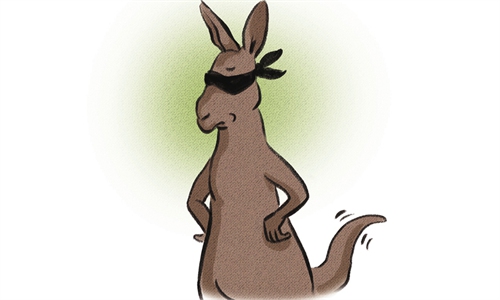Australian media outlet fakes news to accuse China of causing 'debt traps' through BRI

Photo: VCG
The fact that China has been expanding its influence in the world while sharing its growth dividend with partner countries through projects under the Belt and Road Initiative (BRI) has caused envy and animosity in some Western countries, which have been demonizing China and accusing the country of setting up "debt traps". This has been an attempt to sow discord between China and its partners.
A recent article by political editor Peter Hartcher, published in Australia's Sydney Morning Herald newspaper, once again alleged that China's BRI projects in Europe have turned into a national debt trap.
It says a $750-million loan to build a Belt and Road highway in Montenegro is being blamed for the county's national debt blowout to 80 percent of GDP.
It also claimed that Montenegrin President, Milo Djukanovic, went to Beijing a few days before the 17 + 1 Summit (China and Central and Eastern European Countries) to complain to a gathering of Chinese investors, quoting strategic aphorisms from ancient China's Sun Tzu such as "If there is no skill in planning, it is difficult to achieve, and if there is no skill in planning, it will fail." Hartcher claimed in the article that it was the South China Morning Post that reported it.
However, media reports and information from the president's office showed the president did not come to Beijing but attended the summit via video link.
More importantly, the president did not "complain" to China at all. In fact, the South China Morning Post reported that President Djukanovic told participants to the event that the country welcomed Chinese investment in its tourism, energy and transportation sectors, and made a call for the two countries to better understand the challenges to the global economy and jointly seek for adequate solutions.
An article published in the South China Morning Post on Sunday said, "there is no evidence China aims to deliberately push poor countries into debt as a way of seizing their assets or gaining a greater say in their internal affairs." The article quoted Deborah Brautigam, a professor of international political economy at Johns Hopkins University and founding director of the China Africa Research Initiative (CARI) who considers the "debt trap" narrative a myth.
Thousands of Chinese loan documents, mostly for projects in Africa, have been examined by CARI and it has not found any evidence that China seizes the assets of other countries if they fail to pay loans.
The fake news reminded a similar scenario orchestrated by the New York Times that claimed Peter Daszak, an expert from the World Health Organization (WHO) team on mission of tracing virus sources in Wuhan, Central China's Hubei Province, said that China had refused to hand over sensitive data to the experts of WHO.
Peter Daszak, a British zoologist, said on his personal Twitter that it's shameful for the New York Times to engage in selectively misquoting WHO experts to fit its own narrative. "We DID get access to critical new data throughout. We DID increase our understanding of likely spillover pathways," Daszak wrote.
Thea Kølsen Fischer, a Danish epidemiologist on the team, echoed Daszak, and wrote on Twitter that "This was NOT my experience either on the Epi-side. We DID build up a good relationship in the Chinese/Int Epi-team! Allowing for heated arguments reflects a deep level of engagement in the room."

